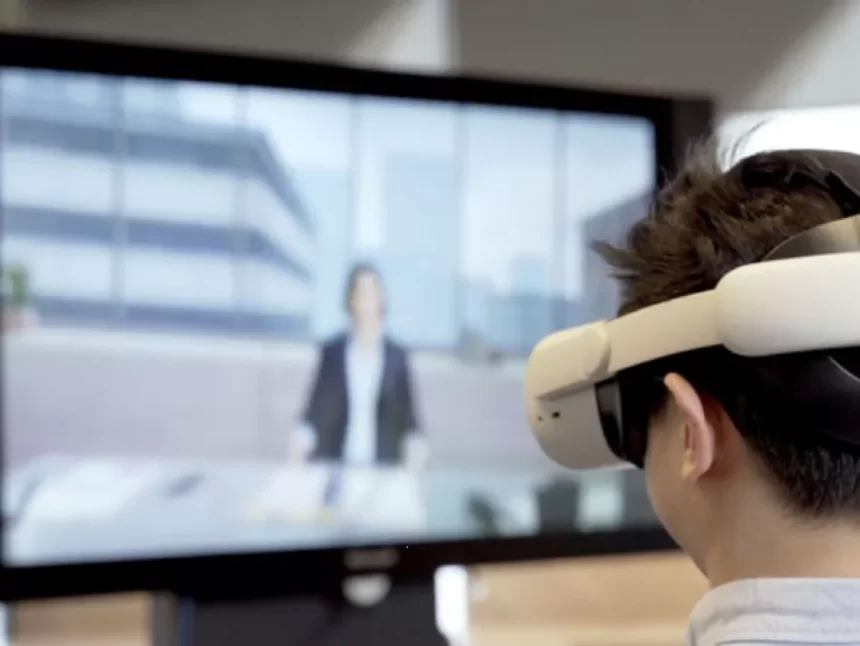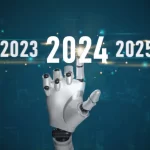A virtual reality role-playing simulation designed by the RMIT College of Business and Law (CoBL) has been recognised at the global QS Reimagine Education Awards for its Immersive VR Roleplay simulation.
The awards – announced in mid-December 2023 – are an annual global conference that recognises the exceptional efforts of educators, institutions, and ed-tech startups who are pioneering education transformation and preparing learners for future challenges.
RMIT University was awarded the global Gold award in Immersive Experiential Learning for their project.
Deputy Dean of Learning and Teaching, Graduate School of Business & Law at RMIT, Ling Mei Cong, who led the pioneering project, says the RMIT simulation is the first of its kind at the College, seamlessly integrating the VR soft skills assessment, alongside the hard skills within the accounting context.
“As artificial intelligence becomes more capable of completing ‘hard skills’ tasks, employers increasingly will need workers with strong, soft skills that set them apart from AI,” she says.

Immersive learning can enhance employability
The College is adding the award to its recognition list for its VR simulation, including the 2022 Australian for University Teaching (AAUT) Citation Award and praise from the well-known similarity detection service Turnitin.
“Compared to traditional classroom learning, VR offers students the opportunity to immerse themselves in simulated workplace environments to practice essential employability skills,” Associate Professor Cong told EducationDaily.
“The educational literature indicates that students’ memory retention rates are much higher when they actively experience practice rather than merely listening or watching.
“VR learners [compared to learners who only learn in traditional classrooms] are more confident in applying what they learn.”
According to Associate Professor Cong, students who use VR get the following benefits:
- Realistic immersive experience: VR provides a lifelike environment where students can interact with emotionally realistic virtual clients or colleagues, resembling real-life scenarios
- Safe and controlled environment: When students engage with virtual clients or colleagues, they can practice conversations without risking hurting anyone’s feelings
- Flexibility: VR training allows students to practice at their own pace and convenience, eliminating the need for logistical coordination with live actors
- Scalability: VR training can accommodate numerous users simultaneously, making it highly scalable for larger student cohorts or businesses
- Cost-efficiency: Traditional role-play or classroom learning can be time-consuming and labour-intensive. In contrast, VR training incurs lower operational costs in the long run compared to the expenses of hiring, training, and compensating live facilitators.
Safe soft skill training
Among the skills that VR can facilitate, Associate Professor Cong says interpersonal and teamwork skills are among the most important for employability going into an AI-influenced future.
“The use of VR allows us to offer students that soft-skill training in a way that’s efficient and safe,” she says.
“Plus, VR assessment is much more resilient to the use of generative AI like ChatGPT among students because it’s not asking students to write a report; instead, it’s experiential VR learning that requires authentic human interaction.”
Associate Professor Cong told EducationDaily that the winning project, implemented into a Financial Analytics course, offered just that.
“Technically speaking, VR can be integrated into any higher education degree, as soft skills like interpersonal skills will be crucial for the future workforce in the AI era. Branching conversation scenarios can be designed or adjusted to replicate real-world situations across various fields, making VR adaptable to different industries or educational curricula,” she says.
“VR serves dual purposes: it can be employed for both hard skills and soft skills training.
“Traditionally, VR has been utilised for enhancing spatial visualisation or simulating risk environments in STEM disciplines, such as engineering, firefighting, and nursing.
“However, its application in soft skills training is an emerging area, and the pioneering project at RMIT exemplifies this trend.”
She told EducationDaily that the university’s leveraging of both hard and soft skills via VR led to the nomination and eventual winning of the award.
One student says she hopes to see more VR learning experiences in other subjects in future.
“It was something out of the ordinary compared to traditional in-class learning. It gives us a preview – a highlight of what to expect in the future.”
Implementing machine learning pushes interpersonal skills
Generative AI and machine learning will be implemented into the conversational part of the roleplay next year to push the students’ interpersonal skills even further.
Associate Professor Cong says she can see VR becoming a wider part of the curriculum for many educators.
“I recommend using the I-D-P-F (information, demonstration, practice and feedback) training effectiveness framework when integrating VR learning into the curriculum,” she told EducationDaily.
“The learning can be designed as a dedicated module or assessment that organically sits in the curriculum.”
Students are provided with reading materials and step-by-step guidelines to grasp the significance of soft skills training, its relevance to their existing or prospective workplaces, and how to develop these skills through structured training.
“Prior to engaging in VR role-play, students are provided with detailed instructions on the pertinent skills and demonstration videos,” Professor Cong says.
“Upon completing the role-play, students are strongly encouraged to write reflections to deepen their learning from the VR experience.”








